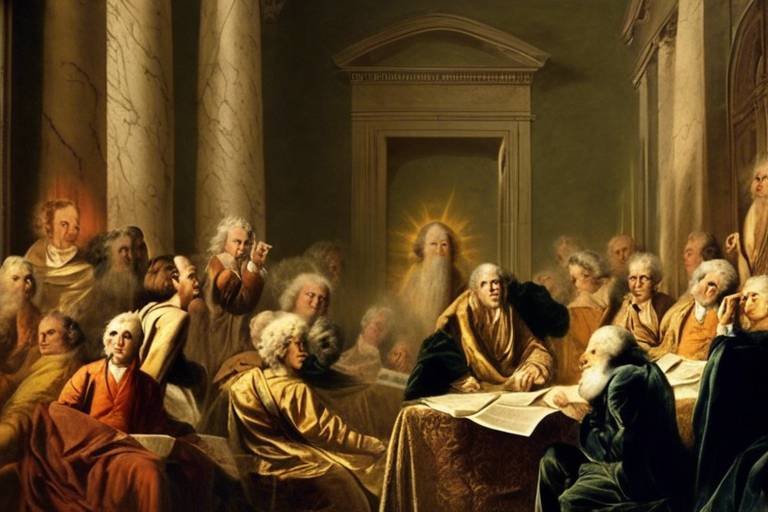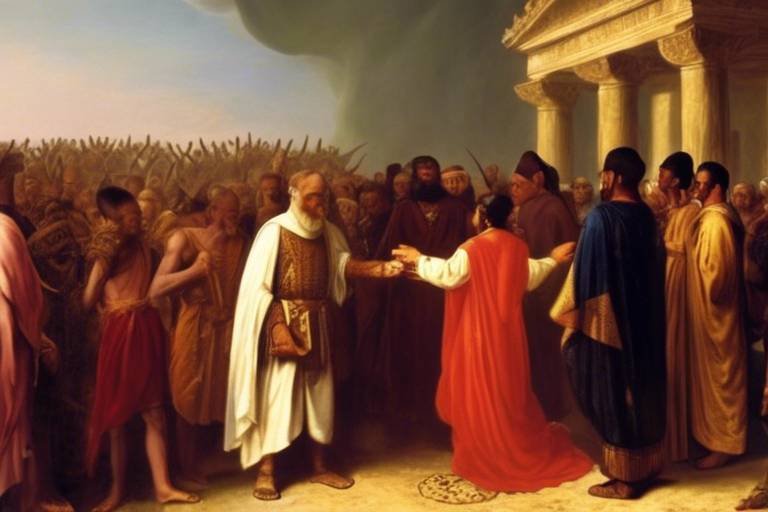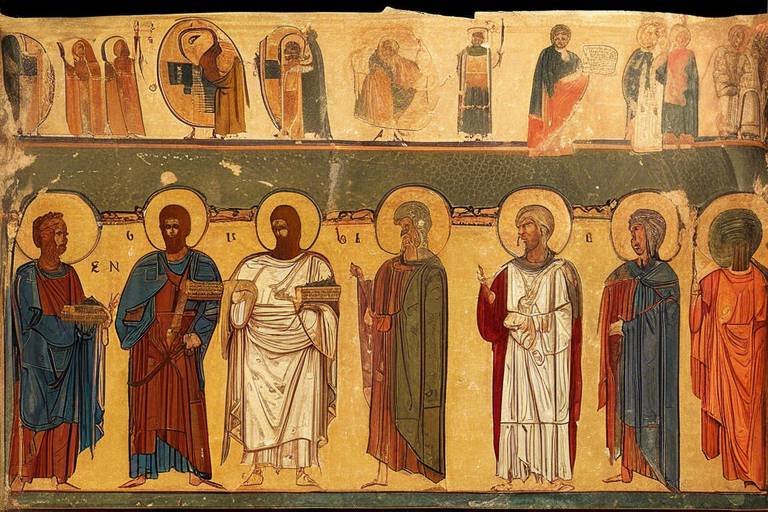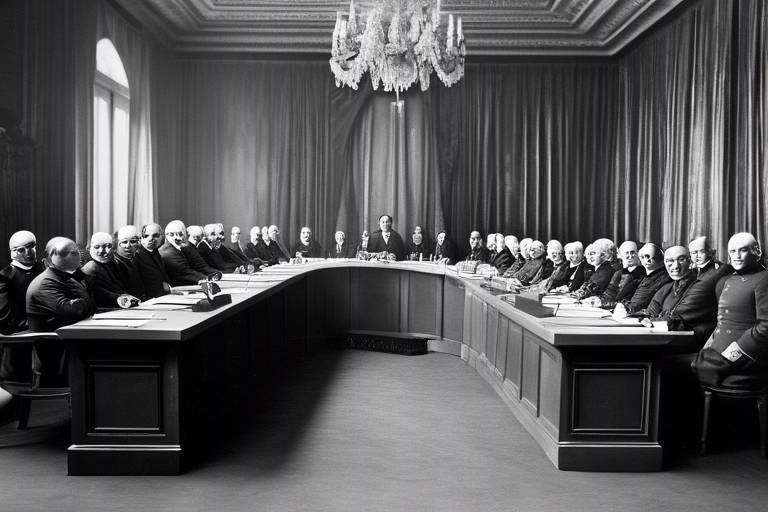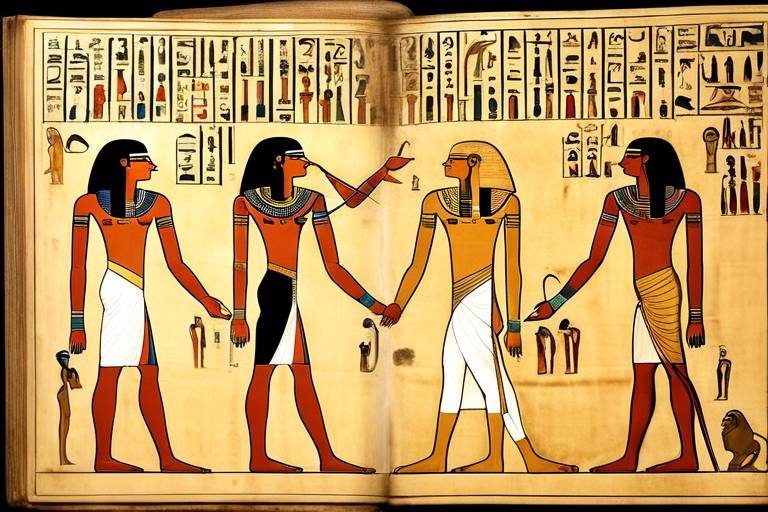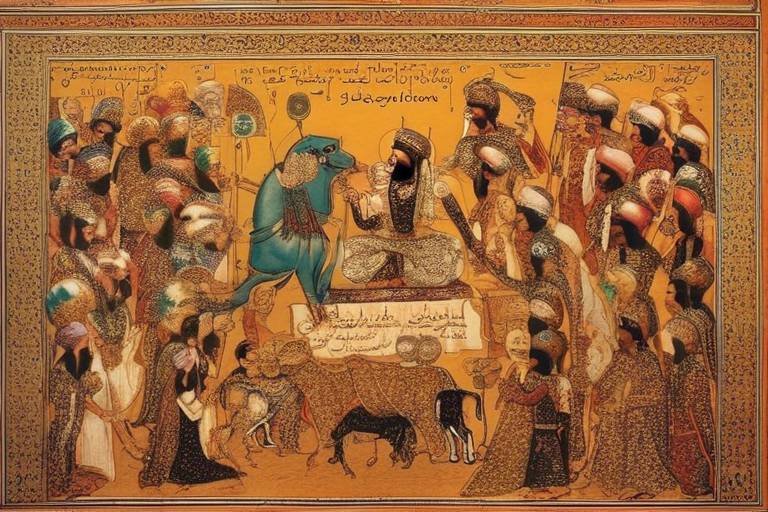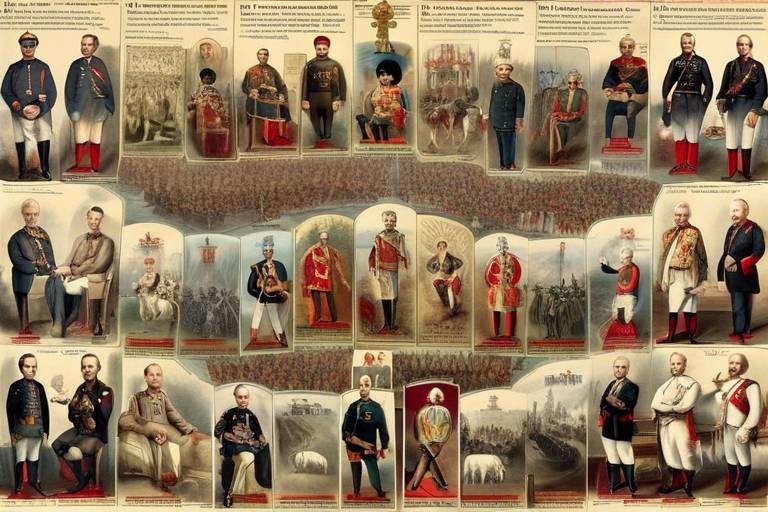The Causes of the American Revolutionary War
When delving into the causes of the American Revolutionary War, one cannot ignore the deep-seated grievances that festered between the American colonies and Great Britain. The tensions that simmered beneath the surface eventually erupted into a full-blown conflict that would alter the course of history forever.
One of the primary catalysts for the Revolutionary War was the colonial grievances that had been mounting for years. The American colonists found themselves increasingly at odds with British policies, particularly the issue of taxation without representation. The imposition of taxes, such as the Stamp Act and Townshend Acts, without any say in the British Parliament, fueled resentment among the colonists.
Furthermore, British imperial policies only served to exacerbate the growing discontent among the colonists. The Proclamation of 1763, which restricted colonial expansion beyond the Appalachian Mountains, and the presence of British troops in the colonies further strained relations between the two sides.
The infamous Boston Tea Party stands out as a pivotal moment in the lead-up to the Revolutionary War. The act of defiance by the colonists against the Tea Act of 1773 not only symbolized their resistance to British taxation but also set the stage for more radical revolutionary actions to come.
Enlightenment ideas played a significant role in shaping American revolutionary thought. Concepts such as natural rights, social contract theory, and the right to self-governance fueled the colonists' desire for independence and laid the philosophical groundwork for the revolution.
Thomas Paine's influential pamphlet, Common Sense, further galvanized public support for independence by challenging the legitimacy of British rule over the colonies. Paine's persuasive arguments resonated with many colonists and helped shift public opinion towards the cause of independence.
The formation of Committees of Correspondence was instrumental in fostering communication and coordination among the colonies. These committees played a crucial role in uniting the disparate colonies in their resistance against British authority, laying the foundation for a unified revolutionary movement.
As tensions continued to escalate and clashes with British forces became more frequent, calls for independence grew louder. The once-distant dream of breaking away from British rule transformed into a fervent desire among many colonists, ultimately culminating in the formal declaration of independence and the birth of a new nation.

Colonial Grievances
During the period leading up to the American Revolutionary War, the American colonists harbored a multitude of grievances against British policies that ultimately fueled their desire for independence. One of the primary issues that incensed the colonists was the concept of taxation without representation. They vehemently opposed the taxes imposed by the British government without having any say in the decision-making process. This lack of representation in the British Parliament left the colonists feeling marginalized and powerless, sparking resentment and resistance.
Furthermore, the restrictions on trade imposed by the British government severely hindered the economic prosperity of the colonies. Acts such as the Navigation Acts limited the colonies' ability to engage in free trade with other nations, stifling their economic growth and autonomy. The American colonists viewed these restrictions as oppressive and detrimental to their livelihoods, further deepening their dissatisfaction with British rule.
Additionally, the presence of British troops in the colonies served as a constant reminder of their subjugation to the British crown. The Quartering Act, which required colonists to house and feed British soldiers, was particularly resented by the colonists. The sight of British soldiers patrolling their streets and enforcing British laws only served to exacerbate tensions and solidify the colonists' resolve to break free from British control.

British Imperial Policies
Exploring the factors that led to the historic conflict between the American colonies and Great Britain, ultimately resulting in the birth of a new nation.
Examining the various grievances that the American colonists had against British policies, including taxation without representation, restrictions on trade, and the presence of British troops.
Discussing the series of policies imposed by the British government, such as the Stamp Act, Townshend Acts, and Intolerable Acts, that fueled resentment among the colonists and sparked resistance.
During this tumultuous period, the British government enforced a series of policies that significantly aggravated the American colonists. The infamous Stamp Act of 1765, which imposed direct taxes on various printed materials, ignited widespread opposition due to its imposition without colonial consent. Subsequently, the Townshend Acts of 1767 further strained relations by levying duties on imports like glass, paper, and tea. These actions not only burdened the colonists economically but also symbolized British dominance and control over their affairs.
Analyzing the Proclamation of 1763 and its impact on colonial expansion and relations with Native American tribes, contributing to tensions between the colonies and the British government.
Exploring the events leading up to and following the Boston Tea Party, a pivotal moment in colonial protest against British taxation policies and a catalyst for further revolutionary actions.
Examining the influence of Enlightenment ideals on American revolutionary thought, including concepts of natural rights, social contract theory, and the right to self-governance.
Analyzing the impact of Thomas Paine's influential pamphlet Common Sense in galvanizing public support for independence and challenging the legitimacy of British rule over the colonies.
Discussing the role of the Committees of Correspondence in fostering communication and coordination among the colonies, laying the groundwork for unified resistance against British authority.
Exploring how escalating tensions and clashes with British forces led to a shift in colonial sentiment, with increasing calls for independence and the formal break from British rule.

Proclamation of 1763
The Proclamation of 1763 was a significant decree issued by the British government following the end of the French and Indian War. This proclamation aimed to establish order and stability in the newly acquired territories by prohibiting colonial settlement west of the Appalachian Mountains. The British authorities sought to prevent conflicts with Native American tribes and maintain control over the western frontier.
By restricting westward expansion, the Proclamation of 1763 angered many American colonists who saw the vast lands beyond the Appalachians as opportunities for growth and prosperity. The proclamation not only limited their economic prospects but also infringed upon their perceived rights as British subjects. Colonists felt that their freedom to explore and settle new lands was being unjustly curtailed by a distant government.
Moreover, the Proclamation of 1763 heightened tensions between the colonies and the British Crown, as it signaled a shift towards more assertive and restrictive imperial policies. The enforcement of this decree by British officials further fueled resentment among colonists who viewed it as a direct infringement on their autonomy and self-governance.
Despite the intentions of the Proclamation to maintain peace and stability, it ultimately served to deepen the divide between the American colonies and Great Britain. The restrictions imposed by this proclamation contributed to the growing sense of discontent and defiance among the colonists, setting the stage for further conflicts and ultimately paving the way for the American Revolutionary War.

Boston Tea Party
The stands as a defining moment in the lead-up to the American Revolutionary War, symbolizing the colonists' defiance against British taxation policies. The event, which took place on December 16, 1773, saw a group of colonists disguised as Native Americans board British ships and dump chests of tea into Boston Harbor. This act of protest was a direct response to the Tea Act of 1773, which granted the British East India Company a monopoly on tea imports to the colonies, leading to lower-priced tea but maintaining the tax imposed by the Townshend Acts.
By targeting the tea, the colonists sent a powerful message to the British government that they would not accept taxation without representation. The Boston Tea Party ignited further tensions between the colonies and Britain, prompting harsh retaliatory measures from the British Parliament in the form of the Coercive Acts, known to the colonists as the Intolerable Acts. These punitive laws aimed to assert British authority and punish Massachusetts for the rebellious actions in Boston.
The repercussions of the Boston Tea Party reverberated throughout the colonies, galvanizing support for the revolutionary cause and solidifying opposition to British rule. The event served as a rallying cry for those advocating for independence and fueled the momentum towards open conflict with the British authorities. The defiance displayed during the Boston Tea Party set the stage for more significant acts of resistance and ultimately played a crucial role in the path to American independence.

Role of Enlightenment Ideas
The Enlightenment era played a crucial role in shaping the ideals and beliefs that fueled the American Revolutionary War. During this period, thinkers and philosophers across Europe and America promoted radical ideas that challenged traditional notions of government and society. Concepts such as natural rights, which argued that individuals possess inherent rights that cannot be taken away by governments, resonated deeply with the American colonists.
Moreover, the social contract theory advanced by Enlightenment philosophers like John Locke emphasized the idea that governments derive their legitimacy from the consent of the governed. This notion directly contradicted the British monarchy's claim to absolute authority over the colonies without their consent, further fueling resentment and desire for self-governance among the colonists.
Additionally, the Enlightenment ideals of reason, progress, and individualism inspired the colonists to question the existing social and political structures. The belief in the power of reason to challenge tyranny and promote liberty encouraged many Americans to seek freedom from British rule and pursue independence as a means to establish a society based on justice and equality.

Common Sense by Thomas Paine
Thomas Paine's Common Sense holds a significant place in American history as a powerful catalyst for revolutionary change. Published in 1776, this influential pamphlet eloquently argued for the colonies' independence from British rule, igniting a fire of patriotism and dissent among the American people.
Paine's Common Sense resonated with the common folk, presenting complex political ideas in a clear and accessible manner. Through his persuasive writing, he challenged the legitimacy of British authority over the colonies and advocated for the establishment of a new, independent nation based on principles of liberty and self-governance.
In Common Sense, Paine skillfully dismantled the notion of monarchy and aristocracy, advocating for a government by and for the people. By appealing to the colonists' sense of justice and natural rights, he galvanized public opinion and paved the way for a united front against British tyranny.
This revolutionary pamphlet served as a wake-up call to the American people, urging them to break free from the chains of oppression and forge their own destiny. Paine's impassioned plea for independence reverberated throughout the colonies, inspiring a wave of patriotic fervor and laying the groundwork for the Declaration of Independence.

Common Sense
Exploring the factors that led to the historic conflict between the American colonies and Great Britain, ultimately resulting in the birth of a new nation.
Examining the various grievances that the American colonists had against British policies, including taxation without representation, restrictions on trade, and the presence of British troops.
Discussing the series of policies imposed by the British government, such as the Stamp Act, Townshend Acts, and Intolerable Acts, that fueled resentment among the colonists and sparked resistance.
Analyzing the Proclamation of 1763 and its impact on colonial expansion and relations with Native American tribes, contributing to tensions between the colonies and the British government.
Exploring the events leading up to and following the Boston Tea Party, a pivotal moment in colonial protest against British taxation policies and a catalyst for further revolutionary actions.
Examining the influence of Enlightenment ideals on American revolutionary thought, including concepts of natural rights, social contract theory, and the right to self-governance.
Analyzing the impact of Thomas Paine's influential pamphlet in galvanizing public support for independence and challenging the legitimacy of British rule over the colonies.
Discussing the role of the Committees of Correspondence in fostering communication and coordination among the colonies, laying the groundwork for unified resistance against British authority.
Exploring how escalating tensions and clashes with British forces led to a shift in colonial sentiment, with increasing calls for independence and the formal break from British rule.
by Thomas Paine was a groundbreaking pamphlet that played a significant role in shaping the American revolutionary movement. Paine's persuasive arguments and clear language resonated with the colonists, urging them to break free from British oppression and embrace the idea of self-governance. By appealing to common sense and the inherent rights of individuals, Paine ignited a spark of rebellion that ultimately fueled the drive for independence.

in galvanizing public support for independence and challenging the legitimacy of British rule over the colonies.
Thomas Paine's influential pamphlet Common Sense played a pivotal role in galvanizing public support for independence and challenging the legitimacy of British rule over the colonies. By eloquently articulating the principles of individual rights and self-governance, Paine's work resonated deeply with the American colonists, fueling their desire for freedom and autonomy. The powerful arguments presented in Common Sense served as a catalyst for revolutionary fervor, inspiring many to question the authority of the British crown and advocate for a break from colonial ties.

Committees of Correspondence
The Committees of Correspondence played a crucial role in the lead-up to the American Revolutionary War by facilitating communication and coordination among the colonies. These committees, established in the early 1770s, served as a network for sharing information, organizing resistance efforts, and rallying support for the cause of independence. By exchanging letters and intelligence, the committees helped unify the colonies in their opposition to British policies and actions.
One of the most significant functions of the Committees of Correspondence was their role in spreading revolutionary ideas and mobilizing public opinion. Through their correspondence, they disseminated propaganda, news of British injustices, and calls to action, effectively shaping the narrative of resistance against British rule. This grassroots communication network played a vital part in galvanizing support for the revolutionary movement and fostering a sense of unity among the colonies.
Moreover, the Committees of Correspondence served as a precursor to more formal structures of governance and cooperation, laying the groundwork for the Continental Congress and the eventual establishment of a unified government. By fostering collaboration and solidarity among the colonies, these committees helped pave the way for the emergence of a collective identity and a shared sense of purpose in the fight for independence.

Growing Calls for Independence
As tensions between the American colonies and Great Britain continued to escalate, the calls for independence grew louder and more fervent. The once loyal colonists, disillusioned by British oppression and heavy-handed policies, began to see a future free from British rule as not only desirable but necessary for their survival and prosperity.
The clashes with British forces, such as the infamous battles of Lexington and Concord, served as a wake-up call to many colonists, highlighting the brutality and tyranny of British rule. The sight of fellow Americans shedding blood in defense of their rights and freedoms ignited a fire of resistance that could not be extinguished.
Leaders like Samuel Adams and John Hancock emerged as vocal advocates for independence, rallying support and galvanizing the colonists to stand united against British tyranny. The idea of self-governance and the right to determine their own destiny became deeply ingrained in the hearts and minds of the American people.
As the flames of revolution spread throughout the colonies, the once unthinkable notion of breaking away from the British Empire became a rallying cry for freedom and self-determination. The Declaration of Independence, penned by Thomas Jefferson and adopted on July 4, 1776, solidified the colonists' resolve to forge a new path and create a nation founded on the principles of liberty and democracy.
Frequently Asked Questions
- What were the main grievances of the American colonists against British policies?
The American colonists had various grievances against British policies, including taxation without representation, restrictions on trade, and the presence of British troops in the colonies. These issues fueled resentment and played a significant role in the lead up to the Revolutionary War.
- How did Enlightenment ideas influence the American revolutionary thought?
The Enlightenment ideals had a profound impact on American revolutionary thought by introducing concepts of natural rights, social contract theory, and the right to self-governance. These ideas inspired the colonists to challenge British authority and fight for independence.
- What role did Thomas Paine's "Common Sense" play in the push for independence?
Thomas Paine's pamphlet "Common Sense" played a crucial role in galvanizing public support for independence. It challenged the legitimacy of British rule over the colonies and helped sway public opinion towards the idea of breaking away from British control.
- How did the Committees of Correspondence contribute to the American Revolutionary War?
The Committees of Correspondence played a vital role in fostering communication and coordination among the colonies. They helped unify resistance efforts against British authority, laying the groundwork for organized opposition and eventual independence.
- What events led to the growing calls for independence from Great Britain?
Escalating tensions, clashes with British forces, and the culmination of grievances against British policies led to a shift in colonial sentiment. These factors, combined with the desire for self-governance and freedom, fueled the growing calls for independence and the eventual break from British rule.



